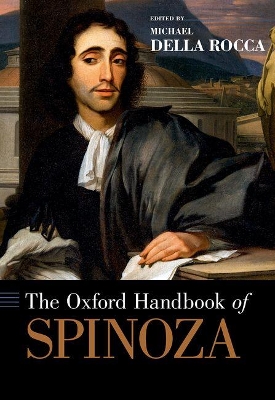Oxford Handbooks
1 total work
Until recently, Spinoza's standing in Anglophone studies of philosophy has been relatively low and has only seemed to confirm Friedrich Heinrich Jacobi's assessment of him as "a dead dog." However, an exuberant outburst of excellent scholarship on Spinoza has of late come to dominate work on early modern philosophy. This resurgence is due in no small part to the recent revival of metaphysics in contemporary philosophy and to the increased appreciation of Spinoza's
role as an unorthodox, pivotal figure - indeed, perhaps the pivotal figure - in the development of Enlightenment thinking. Spinoza's penetrating articulation of his extreme rationalism makes him a demanding philosopher who offers deep and prescient challenges to all subsequent, inevitably less
radical approaches to philosophy. While the twenty-six essays in this volume - by many of the world's leading Spinoza specialists - grapple directly with Spinoza's most important arguments, these essays also seek to identify and explain Spinoza's debts to previous philosophy, his influence on later philosophers, and his significance for contemporary philosophy and for us.
role as an unorthodox, pivotal figure - indeed, perhaps the pivotal figure - in the development of Enlightenment thinking. Spinoza's penetrating articulation of his extreme rationalism makes him a demanding philosopher who offers deep and prescient challenges to all subsequent, inevitably less
radical approaches to philosophy. While the twenty-six essays in this volume - by many of the world's leading Spinoza specialists - grapple directly with Spinoza's most important arguments, these essays also seek to identify and explain Spinoza's debts to previous philosophy, his influence on later philosophers, and his significance for contemporary philosophy and for us.
